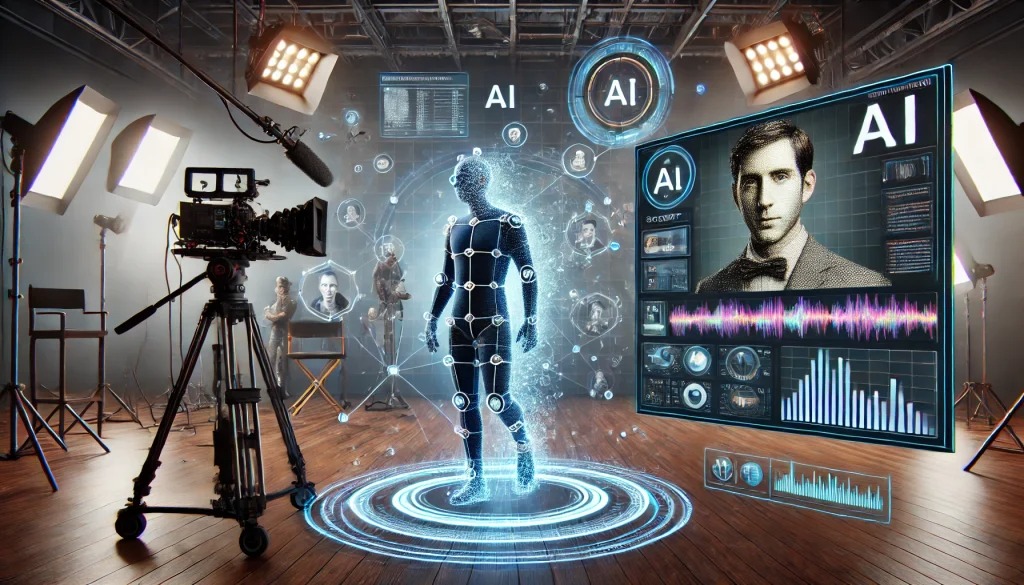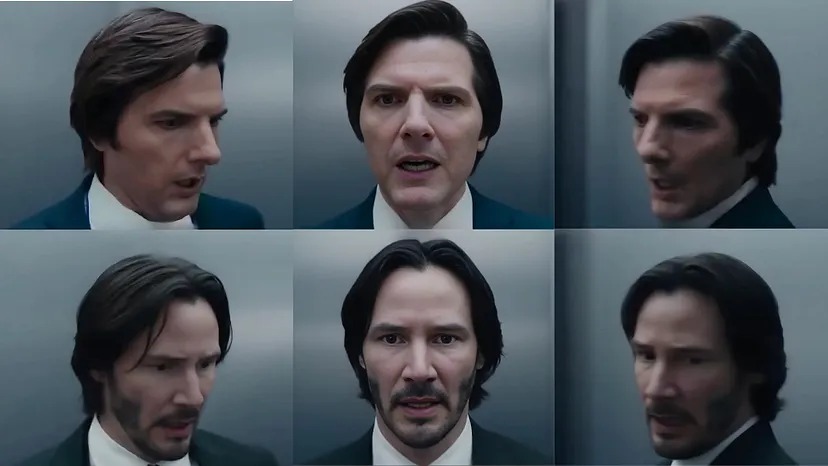The entertainment industry is no stranger to change. From the early days of cinema to the digital age, advancements in technology have continuously reshaped how films are made. However, in recent years, one question has been at the forefront of discussions: Can AI replace any actor in a film? The rapid progress of artificial intelligence and machine learning has opened new doors, and the idea of using AI to generate lifelike performances in place of human actors is no longer a far-off concept. In fact, it may be closer to reality than many realize.
The Rise of Artificial Intelligence in Entertainment
Artificial intelligence, once a subject confined to science fiction, has permeated almost every aspect of our lives. In the entertainment world, AI has been increasingly used for various purposes, such as creating CGI (computer-generated imagery) characters, enhancing visual effects, and even generating scripts. However, the ability to generate lifelike, believable performances from AI-powered characters is what’s truly revolutionary.
AI has evolved from simply aiding filmmakers with post-production tasks to becoming a significant player in the creative process itself. By leveraging advanced machine learning techniques, AI systems can now analyze hours of footage, replicate an actor’s facial expressions, voice, and body language, and use this data to create entirely new performances. This technology can even mimic the mannerisms and delivery styles of established stars, offering the possibility of recreating iconic performances or creating entirely new characters that blend seamlessly into any narrative.
How Does AI Replace Human Actors?
AI’s potential to replace human actors hinges on several key components. First and foremost, deep learning models are trained on massive datasets, allowing the system to learn from thousands of hours of film and television footage. The more data the system is exposed to, the better it becomes at replicating nuances such as tone, timing, and movement. These AI models can produce realistic facial expressions and body movements that match a given script.
Additionally, AI tools are now able to generate synthetic voices. These voices can be designed to closely match an actor’s vocal patterns, including intonation, pitch, and cadence. This is done by training a neural network to replicate an actor’s voice, which can then be used to “speak” any line of dialogue. By combining AI-driven facial animations and voice synthesis, filmmakers could, in theory, replace actors with entirely digital versions of themselves.
Read More : Will Your Device Receive HyperOS 3 and Android 16?
The Benefits of AI in Film Production
While the idea of AI replacing human actors may seem unsettling to some, there are several benefits to incorporating AI into the filmmaking process. Here are just a few:
1. Cost Efficiency
Producing a movie can be an expensive endeavor, especially when it involves hiring well-known actors for key roles. The costs associated with securing talent, providing accommodations, and compensating actors for their time can add up quickly. With AI, filmmakers could generate virtual actors that require no compensation, and whose digital creations can be reused across multiple films, reducing overall production costs.
2. Flexibility in Filmmaking
Filmmakers often face challenges when it comes to scheduling conflicts, or actors being unavailable for reshoots or additional scenes. AI-generated actors could be available on-demand, giving directors more creative freedom to make last-minute changes or revisions without worrying about coordinating with human talent. This flexibility could be particularly useful in fast-paced industries like television production, where time constraints often dictate creative decisions.
3. Preservation of Iconic Performances
AI has the potential to preserve the performances of actors, even after they have passed away. Through the use of digital recreation, deceased stars could be brought back to life on screen, allowing them to continue playing roles in new films. In some cases, actors might even choose to provide their likeness and voice to be used posthumously, ensuring that their legacy endures for generations to come.
4. The Possibility of Infinite Variations
With AI, filmmakers can create endless variations of characters. For instance, they could generate multiple versions of the same character in different age ranges or appearances, providing creative possibilities that would be difficult to achieve with human actors. This can be especially useful in franchises or sequels, where the same character may need to evolve over time.

Challenges and Ethical Considerations
While the potential of AI in the entertainment industry is exciting, it also raises several concerns. One of the main challenges is ensuring that AI-generated performances remain genuine and emotionally resonant. Human actors bring a unique emotional depth to their performances, something that AI may struggle to replicate fully. As sophisticated as AI has become, it lacks true empathy and understanding, which could result in performances that feel cold or inauthentic.
1. The Threat to Human Actors
The idea that AI could replace human actors raises important ethical questions. If AI can recreate an actor’s likeness, voice, and mannerisms with near-perfect accuracy, what does that mean for the future of human talent in the film industry? Will actors be replaced entirely by digital creations, or will there still be a demand for human performances? The answer is still unclear, but it’s certain that AI will disrupt the traditional roles of actors in some capacity.
2. Intellectual Property and Consent
One of the most pressing concerns with AI-generated actors is the issue of intellectual property and consent. If an AI is trained on an actor’s likeness without their permission, it raises significant legal questions regarding ownership of that likeness. Actors may find their likeness being used without compensation, and their performances could be manipulated in ways they never intended. The need for clear guidelines and consent agreements is paramount as the use of AI continues to grow.
3. The Dangers of Deepfakes
AI’s ability to replicate human faces and voices also brings the danger of deepfakes—hyper-realistic but entirely fabricated media that can be used for malicious purposes. In the wrong hands, AI could be used to create fake performances that deceive audiences or even damage the reputations of real actors. This potential for abuse adds another layer of complexity to the use of AI in film.
The Future of AI in Film
So, can AI replace any actor in a film? While the technology is advancing rapidly, it’s unlikely that AI will entirely replace human actors in the near future. What is more likely is that AI will become a powerful tool in the creative process, augmenting the capabilities of filmmakers and allowing them to explore new artistic possibilities.
Filmmakers may use AI to generate characters for specific roles, or to create unique visual effects that were once thought impossible. In some cases, AI may even serve as a complementary tool, working alongside human actors to enhance their performances or create seamless visual storytelling experiences.
Final Thoughts
Artificial intelligence has the potential to transform the entertainment industry in ways we are only beginning to understand. While it may not entirely replace human actors, AI is already revolutionizing how films are made and has the ability to enhance the creative process. As AI technology continues to evolve, we can expect even more groundbreaking developments in the world of film production, offering filmmakers new tools to tell stories in innovative ways. The future of cinema is undoubtedly exciting, and AI will play a key role in shaping it.









